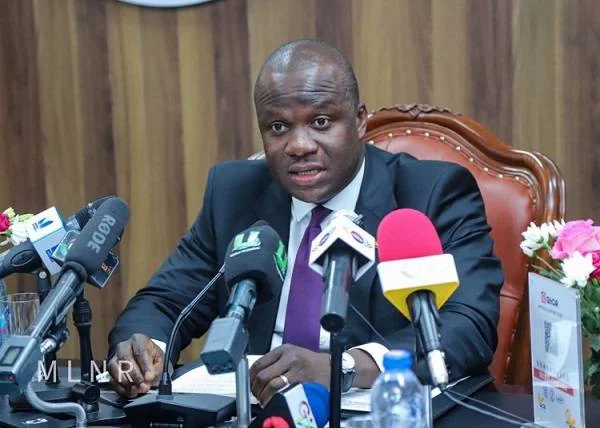Damongo MP, Samuel Abdulai Jinapor, has challenged the government’s claim that reducing the number of ministers to 60 will lead to cost savings, asserting that the financial strain remains unchanged.
He argued that while the President presents the reduction as a step towards efficiency, the responsibilities once handled by ministers have merely been reassigned to the Office of the President.
As a result, Jinapor pointed out, many Presidential Advisors, Staffers, and Aides have been appointed, receiving the same benefits as ministers but without needing parliamentary approval.
“The President says he has reduced the number of ministers, but the number of people working in the presidency has grown. These advisors and staffers enjoy similar privileges to ministers, so where is the cost reduction?” Jinapor questioned.
He explained that some of these appointees, such as Senior Presidential Advisors, are compensated at levels comparable to Cabinet Ministers, while Presidential Aides are treated similarly to Deputy Ministers.
Jinapor also emphasized that although some ministries have been merged or eliminated, their functions have been shifted to the presidency, meaning government spending has not decreased.
He pointed out that the Office of the President now has several senior figures, including a Senior Presidential Advisor on Government Affairs, as well as nearly 10 other Presidential Advisors covering areas like the economy, corruption, and diaspora issues.
“There is even a Director of Agriculture and Agribusiness at the presidency, yet we already have a Ministry of Food and Agriculture. So, what exactly is being reduced?” he asked.
Jinapor further observed that while the President has opted not to appoint Deputy Regional Ministers, he has instead appointed 16 Presidential Staffers to handle regional affairs, questioning if these individuals are effectively Deputy Regional Ministers under a new name.
He also expressed concern over the growing number of communication-related roles at the presidency, revealing that over 20 people are now responsible for government communications, including a Presidential Advisor on Media and several Directors and Deputy Directors of Communication.
“What exactly are they all supposed to be communicating?” he queried.
In addition to these concerns, Jinapor criticized the President for not fulfilling key campaign promises, such as ensuring 30% of Cabinet Ministers are women. He suggested that if the promise cannot be met, the government should be transparent with the public rather than making appointments without accountability.
He concluded by stating that transferring responsibilities from ministries to the presidency does not cut costs but raises questions about transparency and governance. He urged the government to be honest with the citizens and demonstrate that these changes are genuinely aimed at increasing efficiency, rather than merely renaming roles while keeping expenses the same.

